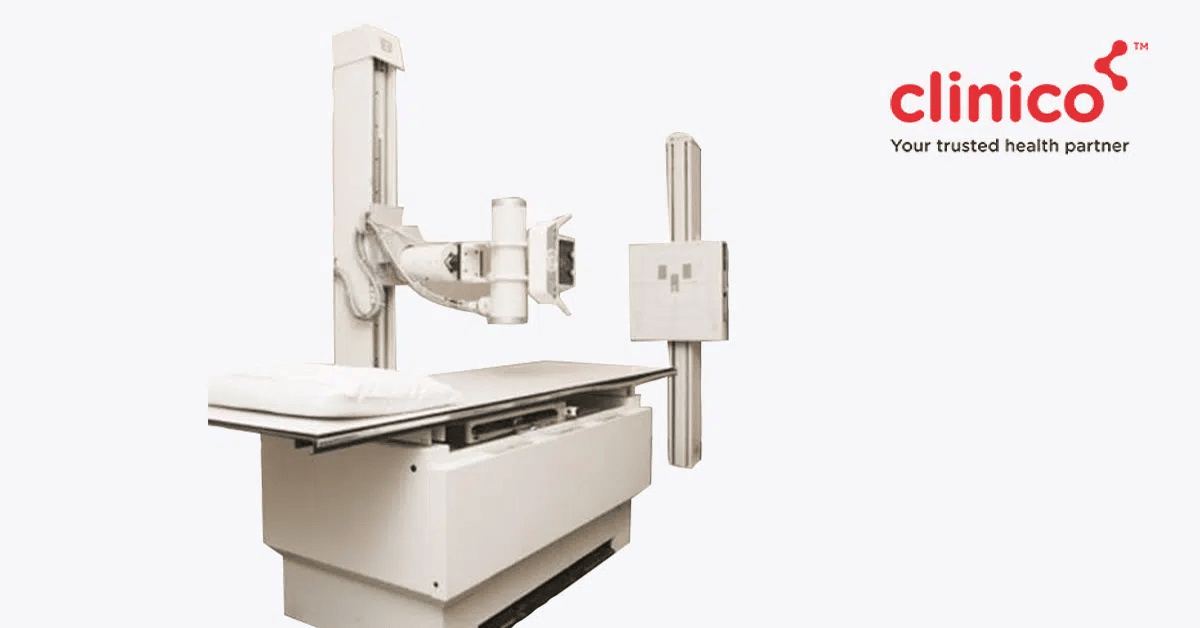
What is an X-ray?
X-ray is one of the most common types of imaging study used worldwide. It involves capturing images of bones & soft tissues present inside a human body.
These pictures are then examined by healthcare professionals to diagnose various health conditions and create treatment plans accordingly.
Who needs an X-ray?
The x-ray test is generally used for everyone, from babies to adults, with the only exception being pregnant women. This is because the radiation from an x-ray can be harmful to the fetus.
An X-ray is usually advised by a doctor to:
- Inspect for a broken bone, dislocated joint and other bone injuries
- Determine the reason behind symptoms like pain & swelling
- Examine for the presence of foreign objects in the body
- Check for structural problems in the bones, joints or soft tissues
- Conduct routine screenings for cancer and other illnesses
- Help in planning & assessing treatments
How the test is performed?
An x-ray is generally conducted in a diagnostic/scan centre or a hospital radiology department.
The healthcare practitioner or staff will ask you to position your body in such a way that the body part to be scanned is exposed to the x-ray machine. You will need to remain still and may have to hold your breath for a moment or two while the machine sends x-ray beams through the body part.
The x-ray images will be captured on film or by a computer, showcasing the scanned body part in shades of black & white. These black and white shades are a consequence of diverse tissues absorbing different amounts of x-ray radiation.
In some cases, various different x-ray views may be required for accurate diagnosis. The test will come to an end once the healthcare practitioner is satisfied with the images captured.
What are the types of X-rays?
Let’s check out the most commonly used x-ray types:
- Abdominal X-ray
As the name suggests, the abdominal x-ray captures pictures of the kidneys, stomach, liver & bladder. It is typically used to detect conditions such as kidney stones and bladder stones. A special type of abdominal x-ray called barium enema comprises using special dyes named contrast to assess digestive system parts. - Bone X-ray
A bone x-ray helps examine broken bones (fractures), dislocated joints & arthritis. It’s also used to check for signs of bone cancer or infection. - Chest X-ray
The chest x-ray is used to detect abnormalities in the heart, lungs & bones in the chest, such as pneumonia. - Dental X-ray
Dental x-rays help dentists assess the current condition of the teeth & gums, along with inspecting for infection and cavities. - Fluoroscopy
This type of x-ray depicts moving images of the organs & soft tissues. It enables healthcare professionals to watch organs in motion on a screen.
Conclusion
X-ray is a commonly used imaging test and plays an important role in diagnosing health conditions globally
If you have been advised an x-ray by a doctor, then you need to look no further than Clinico!
Featuring state-of-the-art technology, our diagnostic centres in Mulund and nearby areas provide accurate x-rays and other imaging test results in a swift and customer-friendly manner.
If you need an x-ray to diagnose a health problem or injury, schedule an appointment at a Clinico diagnostic or scan centre near you!
Call us 24×7 at 9504555555 for scheduling your x-ray today!
FAQ’s
The chest x-ray is the most common type of x-ray conducted for diagnostic purposes.
Maebayashi, Aki, et al. “Importance of abdominal X-ray to confirm the position of levonorgestrel-releasing intrauterine system: A case report.” World Journal of Clinical Cases 10.15 (2022): 4904.
https://www.ncbi.nlm.nih.gov/pmc/articles/PMC9198852/
Mazess, Richard, et al. “Performance evaluation of a dual-energy X-ray bone densitometer.” Calcified tissue international 44.3 (1989): 228-232.
https://link.springer.com/article/10.1007/BF02556569
Çallı, Erdi, et al. “Deep learning for chest X-ray analysis: A survey.” Medical Image Analysis 72 (2021): 102125.
https://www.sciencedirect.com/science/article/pii/S1361841521001717
Rad, Abdolvahab Ehsani, Mohd Shafry Mohd Rahim, and Alireza Norouzi. “Digital dental X-ray image segmentation and feature extraction.” TELKOMNIKA Indonesian Journal of Electrical Engineering 11.6 (2013): 3109-3114.
http://journal.esperg.com/index.php/tijee/article/view/2333
Miller, Donald L. “Overview of contemporary interventional fluoroscopy procedures.” Health physics 95.5 (2008): 638-644.
https://journals.lww.com/health-physics/Fulltext/2008/11000/Overview_of_Contemporary_Interventional.21.aspx

